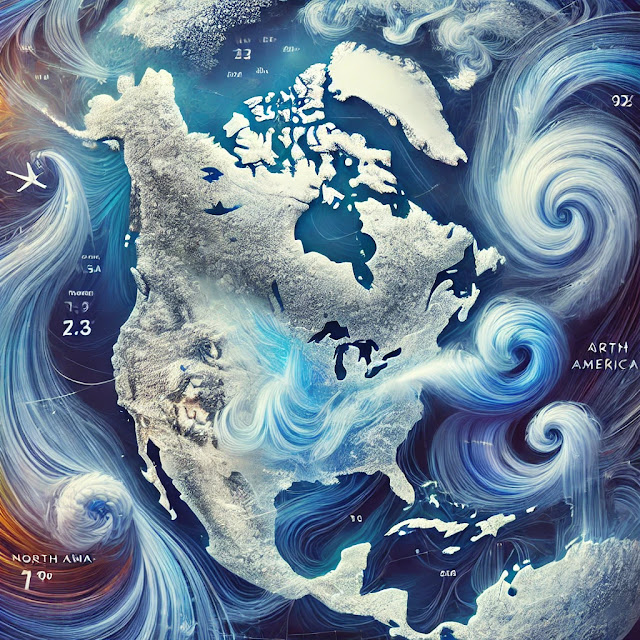Science and God
Everybody has their own view on reality whether a scientist,, a philosopher or a theologian. You see philosophers and theologians they debate abstract ideas. We wonder what practical impact are they have on our day to day lives.
What I have studied that is God and science are integrated and even more so with the advent of modern science in the last hundred years. It actually helped us make some connections of those seemingly mystical qualities about God. I would like to give three examples to illustrate this.
First one is probability, probability in modern sciences is interesting thing. You see pretty much everything has a probability whether it's the normal or really unusual. Let me give you an example of those unusual things. You see if we take a atom again, there's actually a probability that a particle in the atom can leave the atom and at the same time can violate the law of conservation of energy.
Now the law of conservation of energy says that energy is neither created nor destroyed. Yet a particle in the atom without having the energy to do so and no available energy, can overcome a energy barrier and just leave. That's the weirdness of probability.
Now, why is this interesting? Well, theologically we wondered how can God act in these seemingly miraculous ways. I mean isn't it just magic and myth for example God is described as Omniscient(all knowing) outside of time and describe as omnipresent that is everywhere present.
We wonder how is this possible. But yet what if there is a finite probability that God could act miraculously and that's not impossible. What if there's a possibility that God doesn't overstep the bounds of science but actually works within the bounds of nature and science.
You see what I am saying is this, if modern science tells us there's a probability for unusual activity happening. Then we should not be as surprised that God can act and do miraculous things and there's still a probability for that.
Now, I would like to hone in two of these things that I just mentioned that of omniscience and omnipresence and use this in our next examples.
So next, the theory of relativity. In our thought connections that how that it connects to omniscience that is God is outside of time and knowing all. Well, the theory relativity came about in the 1900s by Einstein. It's the theory that has been proven and described over and over throughout the decades.
It has many facets and the one we will focus on is that between velocity and time. Simply said that the faster the object goes the more lag in time you have. There's an interesting sets of experiment that were done to illustrate this in 1971. That is known as Hafele Keating experiments.
They took a couple cesium beam atomic clocks, these are really accurate clocks. They synchronized them and they placed one on the ground and one in a commercial airline that flew around and later landed on the ground. Well, what did they found? The clocks are no longer synchronized. They were actually off by an order of nanoseconds and that can be calculated from the theory of relativity.
Which was behind in time, the one which traveled faster on the airliner and later returned to earth. Well this idea can be expanded such that the faster you go, the slower time goes. Until you reach apex at the universal speed limit, that's the speed limit of light and you know at the speed of light the time is no longer progressive.
You see their time is not a factor for light. We might say light is outside of time. Well, that's weird but it is theory of relativity. What is interesting is theologically. Well, theologically we know that god describes himself as light. Yet we wonder, how could could god be a mission that is outside time and knowing all.
You see if it consider God we know he can see past, present and future all at the same time and knows all. That seems eerily similar and parallel to the idea that photon could be outside of time. I am not saying that god is a photon. What I am saying is that in modern science if it can tell us that light can be outside of time. We should not be surprised that God could be outside of time.
Let's evaluate the third topic in modern science that I want to look at that's entanglement and how that related to the idea of omnipresence. Well entanglement is really interesting strange idea that came about in 1935 by Einstein and others and say you have two particles and they could be photons, electrons, some molecules and various things.
If they are connected or entangled a change in one will effect the change in another. Well, you think no big deal but the interesting thing is you can separate them more and more and more and they can be still be entangled in this distance doesn't seem to be a relevant factor.
If modern science tells us that particles can interact over variable distances, then we are not as surprised that god can interact with humans over a variable distances.
Conclusion
So, you were thinking that so what? I am again saying that, I believe that science and God as I have understood them are totally interconnected and integrated. These seemingly mystical qualities about God that we thought were magic actually have an interesting precedent in modern science.
I would recommend to read the book "God and the new physics" by Paul Davies. This book will clear your all doubts about this topic. If you want to buy this book in discount click shop now below.






Comments
Post a Comment